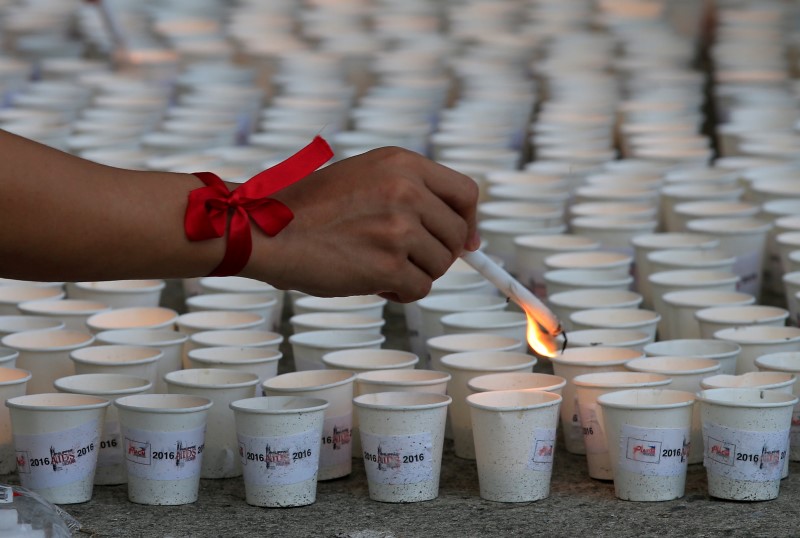By Beh Lih Yi
JAKARTA (Thomson Reuters Foundation) - The Philippines has posted a record number of new HIV infections, prompting campaigners to call on authorities to step up efforts to battle the potentially deadly disease.
A total of 841 new cases were recorded in June, the highest ever monthly figure since the country's first reported case in 1984, according to the health department's latest statistics released this week.
Over 90 percent, or 777 cases, were transmitted through sexual contact, the majority of them among men who have sex with men. Injecting drug users accounted for 60 new cases and the remaining four were cases of mother-to-child transmission.
New cases of the human immunodeficiency virus (HIV) which can lead to AIDS have been rising in the Philippines, bucking the international trend which shows new infections falling.
"This is a cause of concern for us," Gerald Santos from Manila-based campaign group Project Red Ribbon told the Thomson Reuters Foundation on Tuesday.
"But to look at it with the glass half full, it also shows awareness is at an all-time high, meaning more people are aware of HIV and are getting tested."
However, he said the actual number of new infections could be higher, as stigma associated with HIV prevents at-risk group from getting tested.
"The government should double their efforts in spreading awareness about HIV before it is too late," added Santos, the group's treasurer.
The Philippines saw new infections double between 2001 and 2012, according to a U.N. AIDS agency (UNAIDS) report in 2013 which showed the epidemic was also expanding in Indonesia and Pakistan.
Increasing infections among injecting drug users sharing contaminated needles combined with low condom use and high fertility rates have raised concern over "downstream" HIV infections - when the virus spreads to people not typically at risk of HIV, like children who acquire the virus through mother-to-child transmission.
There have been 34,999 HIV cases in the Philippines since record-keeping started in 1984, with 83 percent diagnosed in the last five years, according to the health department.

Globally, some 36.7 million people are living with HIV, according to UNAIDS.